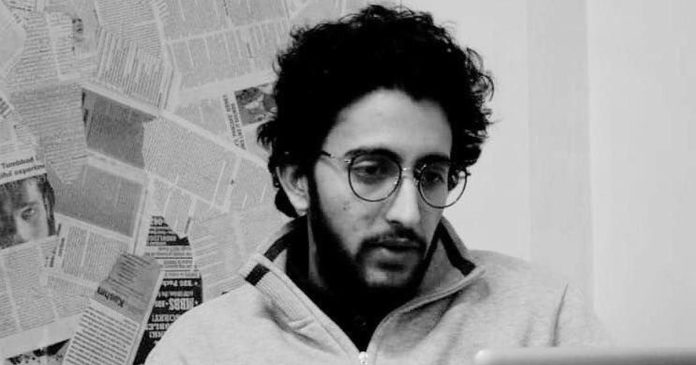Radiance News Service
Nov. 23: Founder-editor of the Kashmiri news magazine The Kashmir Walla and recipient of the Human Rights Press Award in 2021 finally walked out of jail after 21 months. On Nov. 17, 2023, the Jammu and Kashmir and Ladakh High Court dismissed charges under various sections of UAPA against Shah.
Shah, who hails from the Soura area of Srinagar, was arrested on 4 February 2022 by the Jammu and Kashmir Police and three UAPA cases were filed against him.
Shah is an alumnus of the University of Kashmir and later, SOAS, London. He is also the editor of the volume Of Occupation and Resistance: Writings from Kashmir (2013). He had been booked under the Public Safety Act apart from UAPA, and previously arrested under sedition as well. He has been granted bail and re-arrested multiple times since his initial arrest.
Shah, 34, was released from Kot Bhalwal Jail in the region’s southern city of Jammu on Thursday. The Kashmir Walla was banned earlier this year by the Indian government for undeclared reasons. In the bail order, the Court said that the Special Investigation Agency (SIA), a local agency formed earlier this year, lacked evidence against Shah to prove charges under the UAPA.
Shah was also accused of “glorifying terrorism” and “spreading fake news” for publishing a piece by Abdul Aala Fazili, a pharmacy student at the University of Kashmir. Fazili, who was also arrested along with Shah, remains in jail.
In its bail order, the court said, “It would mean that any criticism of the central government can be described as a terrorist act because the honour of India is its incorporeal property. Such a proposition would collide headlong with the fundamental right to freedom of speech and expression enshrined in Article 19 of the Constitution.”
Seven months ago, a court quashed Shah’s detention under the Public Safety Act, saying “the apprehension of an adverse impact to public order is a mere surmise of the detaining authority”.
Press freedom watchdog, the Committee to Protect Journalists (CPJ), has welcomed Shah’s release on bail and demanded that all charges against him must be dropped and the ban on The Kashmir Walla revoked immediately.
Post-revocation of Article 370, independent and free media in Kashmir has almost come to a standstill, with an overwhelming atmosphere of intimidation. According to a report by Asma Hafiz and Ifreen Raveen, independent Kashmiri journalists in The Polis Project, “Many journalists consider August 2019 as a turning point for the situation of journalism in Kashmir… Many journalists claim that stories that are critical of the administration can land them in jail or they can get slapped with an FIR…
“In the growing climate of authoritarianism that is taking hold of India, journalists in Kashmir are increasingly targeted with draconian, anti-terror laws like Unlawful Activities Prevention Act (UAPA) and Public Safety Act (PSA).”
Hafiz and Raveen trace the various changes in media policy post-2019, and the consequent muzzling and decline of almost all independent portals, due to direct censorship as well as consequent self-censorship. Aasif Sultan, another Kashmiri journalist, has been in jail since August 2018 under the UAPA. A photograph of him at the court complex about two years ago went viral – it showed him wearing a T-shirt with the message ‘Journalism is not a crime’.
According to journalist Ipsita Chakravarty writing in Reuters, “The state was able to gain influence over the Kashmiri press by controlling the levers of production: government advertisements were withheld or released according to the content that was published. Besides, journalists and editors critical of the government and security forces faced legal action, harassment and violence. Government policies explicitly controlling the press were also formulated.”
Only two months ago in September 2023, state police “strongly objected” to an article published by the BBC on press freedom in Kashmir and threatened to take legal action.




